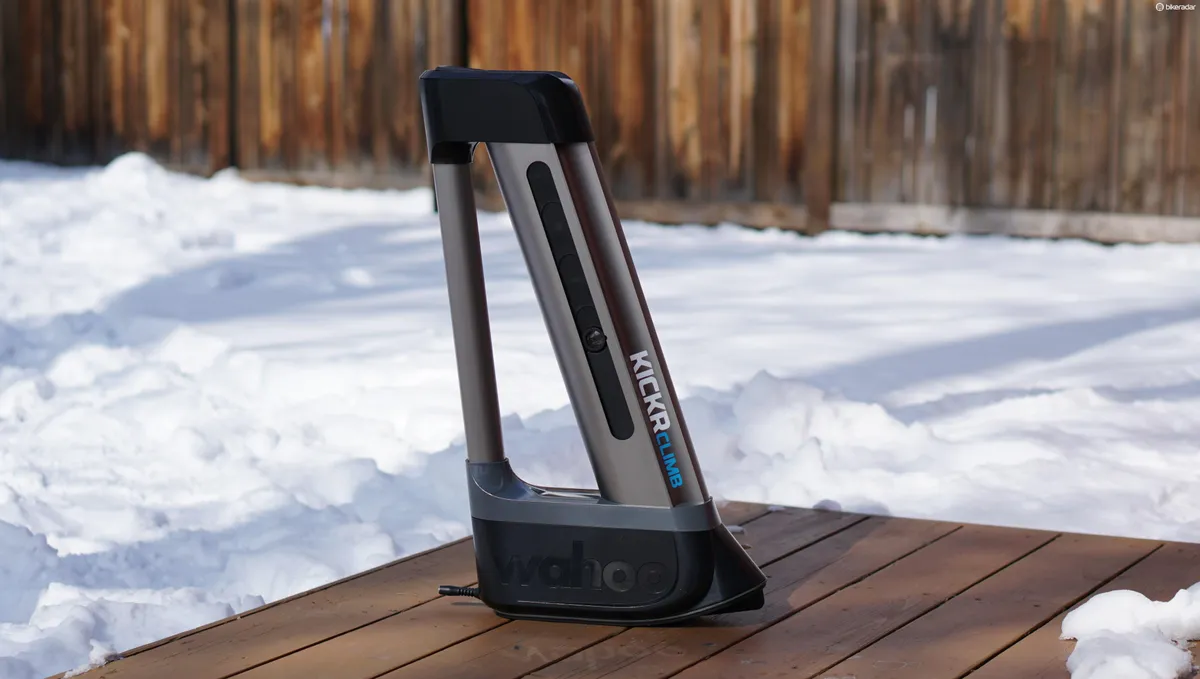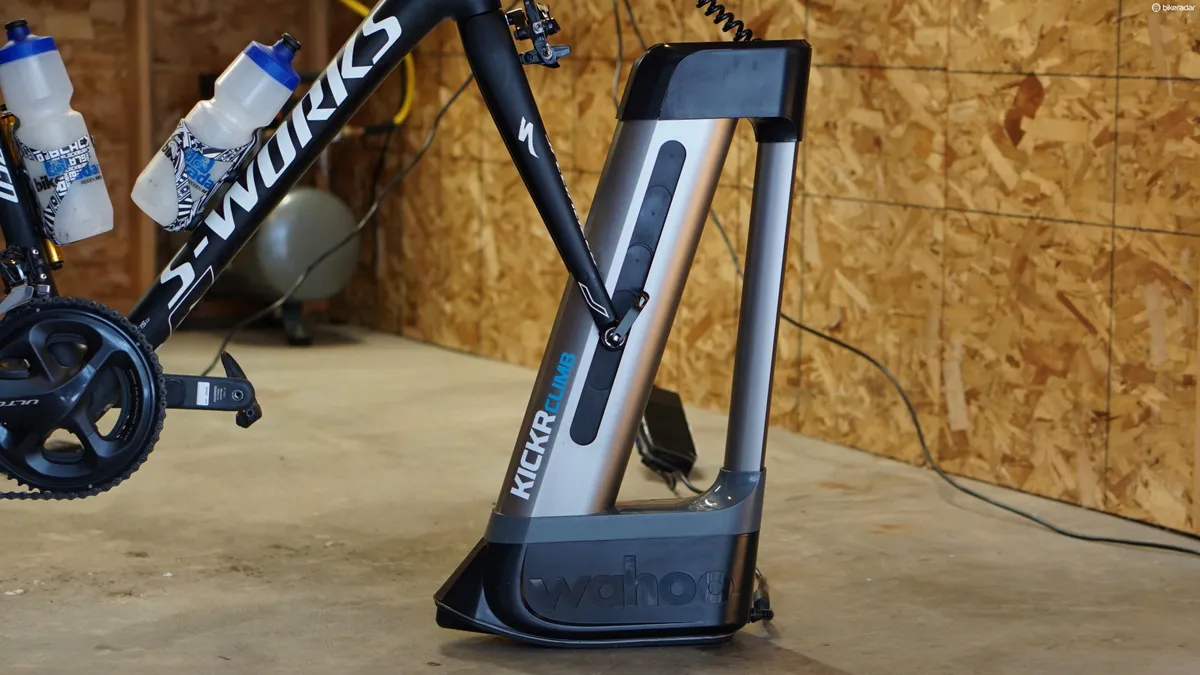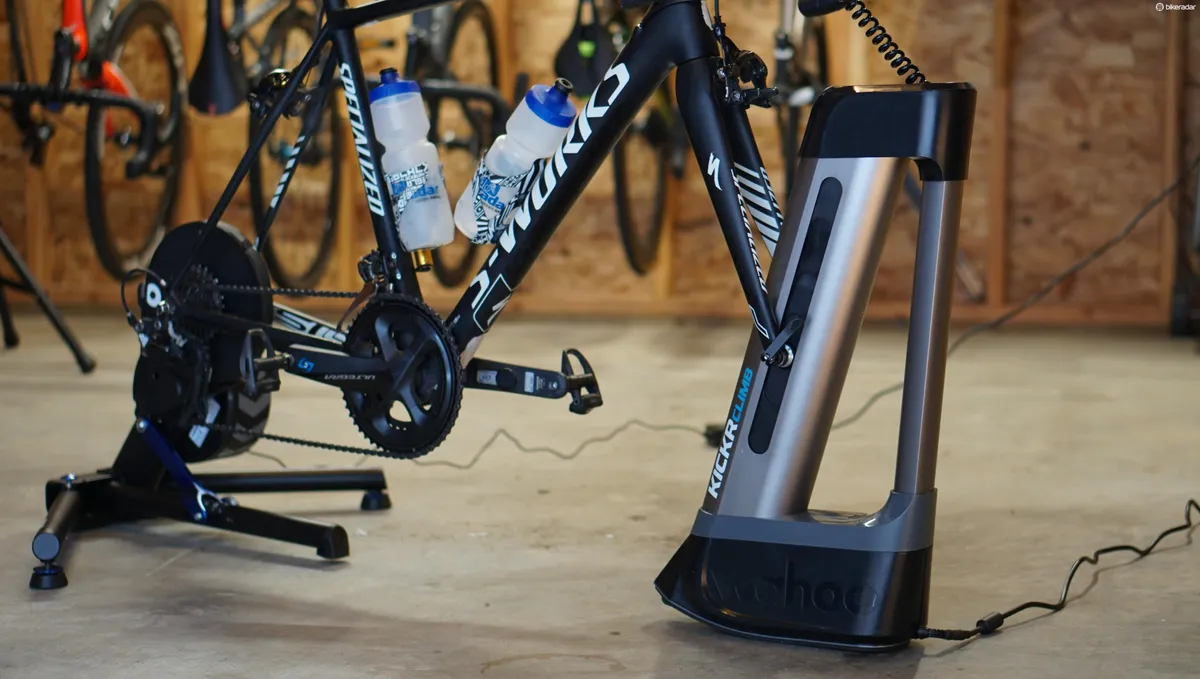By raising and lowering your bike's front end in tandem with the undulations of virtual courses, the Wahoo Kickr Climb adds a new level of engagement to indoor riding.
It only works with newer (2017) Kickr and Kickr Snap smart trainers, but the Climb brings something unique to riding the virtual courses of Zwift.
Like other smart trainers, Wahoo's Kickr and Kickr Snap respond to virtual gradient changes by adjusting resistance. By pairing the Kickr Climb to one of those Wahoo smart trainers, the experience becomes three dimensional.
Similarly, ride files on a Wahoo Elemnt or Elemnt Bolt can be executed inside with the elevation changes simulated by the Climb.
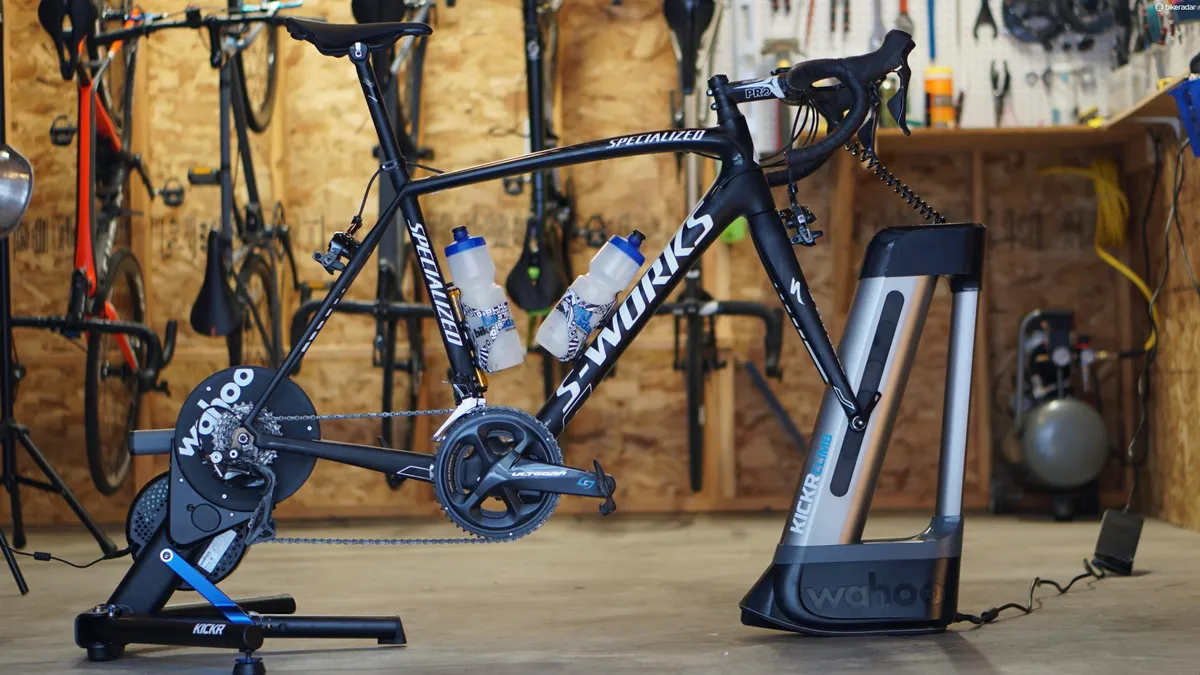
Besides making the virtual climbs and undulations more mentally engaging, the Climb's tilting of the bike can engage your climbing muscles as well.
I briefly tested a prototype at Eurobike, this production sample is substantially quieter and smoother in its elevation changes.
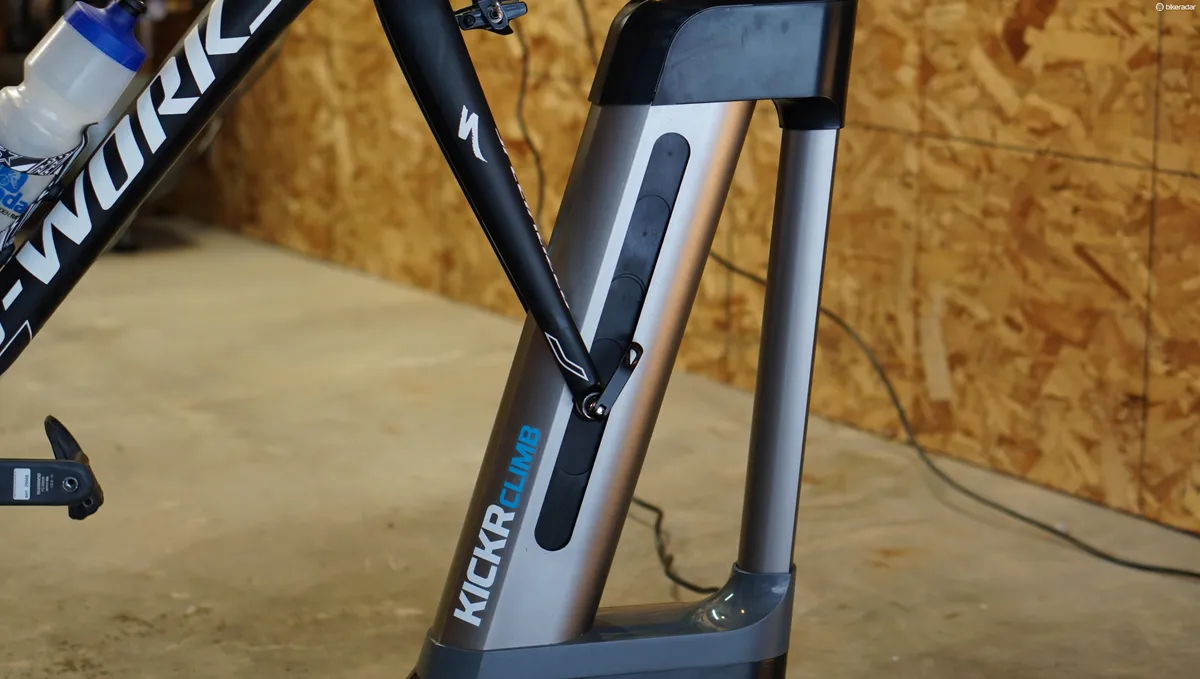
Wahoo Kickr Climb key features
- Simulated gradient changes between -10 percent and 20 percent
- Responds in real time to changes in third-party apps such as Zwift and Ful Gaz
- Can be controlled manually with remote
- Can also be controlled by Wahoo Elemnt and Elemnt Bolt, including following simulated routes
- Only works with newer (2017) Kickr and Kickr Snap smart trainers
- Works with thru-axle (12x100, 15x100 and 15x110mm) and quick-release forks
- 25.8in / 65.4cm tall
- 17lb / 7.7kg
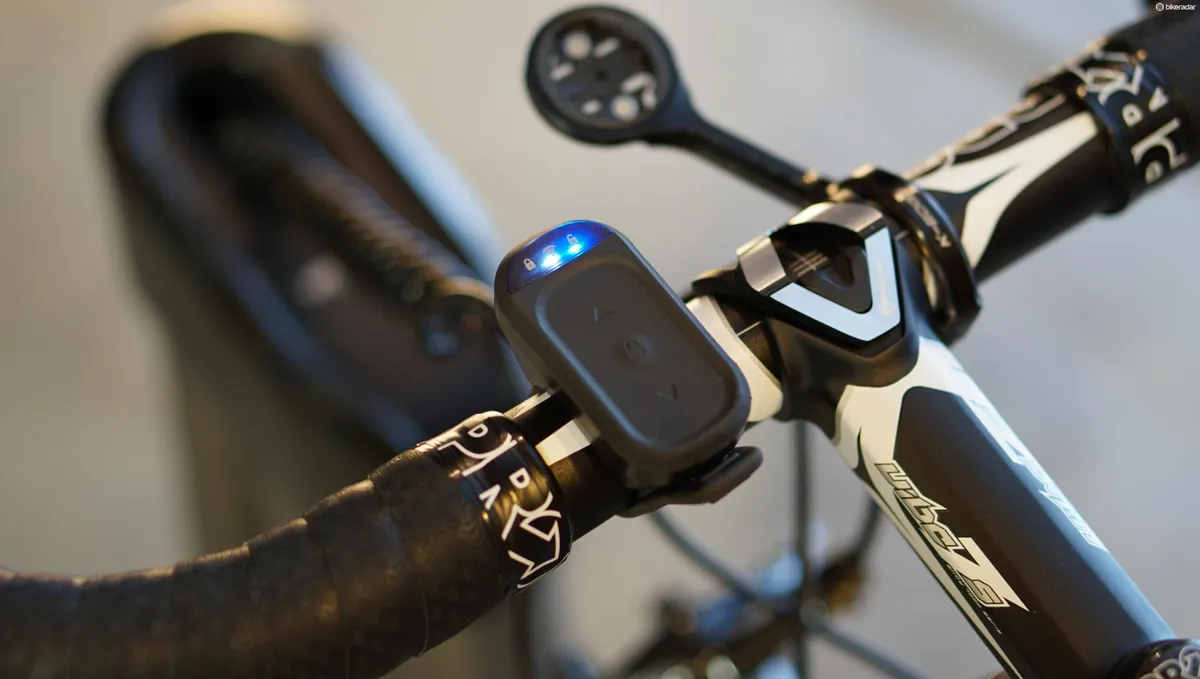
How the Wahoo Kickr Climb works
The Climb comes with inserts for thru-axle (12x100, 15x100 and 15x110mm) and quick-release forks. You put in the ones that work with your bike, then mount your fork on the Climb like you would on a front wheel.
To function, the Climb needs be plugged into an outlet and wirelessly paired to a Kickr or Kickr Snap.
A remote nests on top of the Climb, and can be secured to your handlebars with a rubbery strap.

You press and hold the remote's center button to pair the Climb to a Kickr or Kickr Snap, then the smart trainer acts as an intermediary between Zwift or a Wahoo computer and the Climb. The Climb cannot be used by itself, or with another type of trainer.
You can also use the remote to manually raise or lower the Climb.
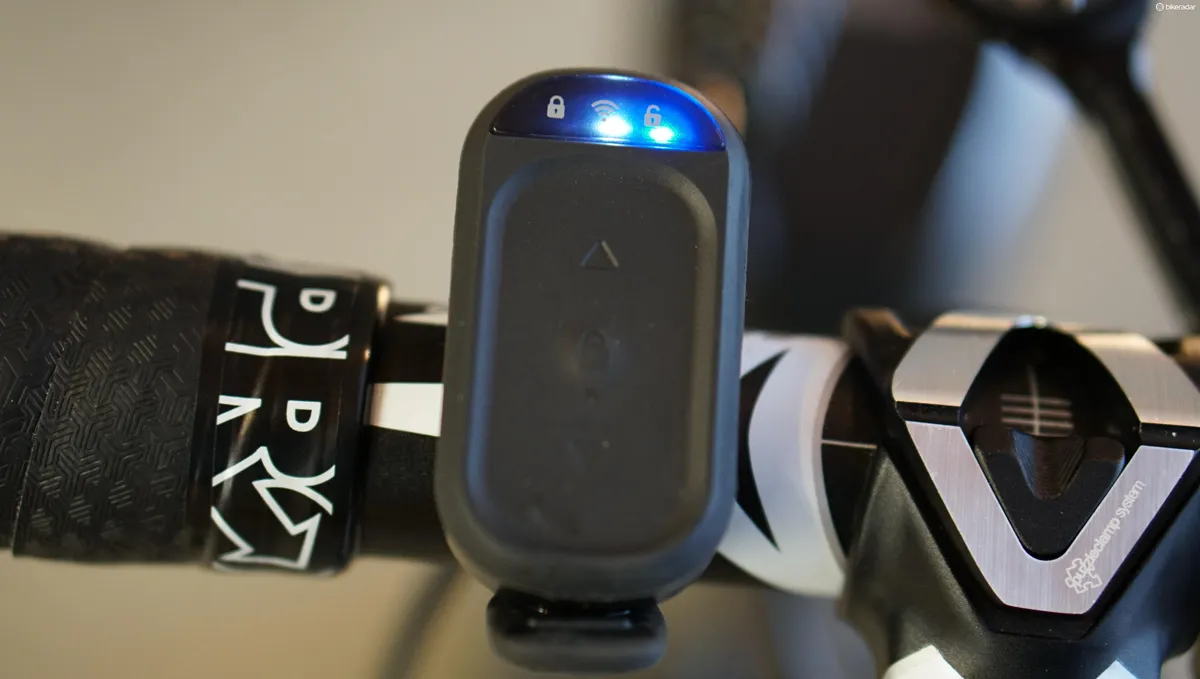
Wahoo Kickr Climb first impressions
To answer perhaps the first question, no, the Climb doesn't tip over when you are out of the saddle. There is a little pivoting play in the steering of the handlebars, but the lateral stability is good.
I tested the Climb with a Kickr smart trainer, which contributes the lion's share of overall stability, locking the bike in at the dropouts.

I tested the Climb on Zwift, using both Bluetooth and ANT+ with my MacBook Air and my iPhone. Zwift crashed once on my laptop, but I don't know if that had anything to do with the Climb.
The Climb reacts smoothly to undulations on Zwift. You can hear the motor making the changes, but the sound is quieter than the Kickr itself.
While the vertical adjustments are much smoother than the prototype I hopped on at Eurobike, the Climb isn't as smooth as a road.
Aside from the mental engagement, I appreciate how you can climb in something similar to your outdoor climbing position, engaging the glutes and lower back. It is weird to have the bike at a steep angle, but not be able to rock the bike side to side.
I don't know about you, but when I'm on a 10 percent or steeper grade, I start leveraging the bike laterally a bit.
I will report back here with a full review after more rides. If you want to see the Climb in action, I will be doing a Livestream on Zwift's Facebook page for about 50 minutes on Friday 23 February (1pm MST / 8pm GMT), Tuesday 27 February (12:50pm MST / 7:50pm GMT) and Wednesday 28 February (6pm MST / 1am GMT).
